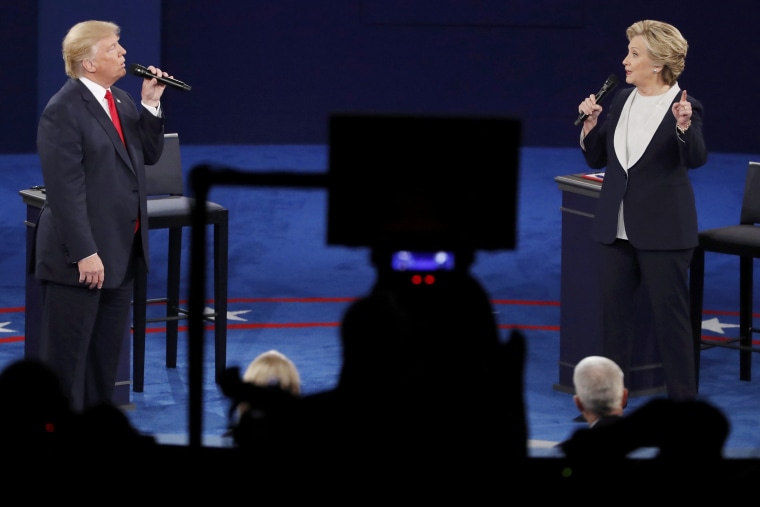The Pew Research Center published an interesting report last week, noting more than 80% of Americans believe partisans "not only disagree over plans and policies, but also disagree on 'basic facts.'" This was, as the report noted, a widely held belief: "Comparably large shares of registered voters who back Clinton (80%) and Trump (81%) say the two sides are unable to agree on basic facts."Ironically, one of the only areas of agreement between Democrats and Republicans is that the other side lives in its own reality.Pew's findings were well timed. The day those results were published, Politico published this report:
The latest Marketplace-Edison Research survey shows economic anxiety is up to 36 from 30 a year ago (the scale runs 0-100). But that's not the depressing part of the poll's findings.It's this: 25 percent of Americans "completely distrust the economic data reported by the federal government, including statistics like the unemployment rate, the number of jobs added, and the amount of consumer spending." Perhaps unsurprisingly, that number soars to 48 percent of Donald Trump supporters compared to just 5 percent of Hillary Clinton supporters.
As discouraging as this is, the results are helpful in understanding why contemporary debates are so frustrating.A reality-based observer might note, for example, that the unemployment rate has dropped sharply under President Obama. And the budget deficit has shrunk. And border security has tightened as the number of undocumented immigrants entering the United States has declined. And government spending has leveled off. And murder rates are down. And voter fraud hardly ever happens anywhere in the United States.Many rank-and-file conservatives will, with great sincerity, insist that each of these claims is wrong. These folks are mistaken, of course, and reality-based observers might point to official evidence to prove their point, but that won't work -- because much of the right "completely distrusts" data reported by the federal government.Indeed, it must be terribly frustrating for conservatives to be stuck in something akin to a state of Cartesian confusion: independent news organizations, citing official data, will routinely tell the public about important developments surrounding, say, job creation. But for much of the right, independent media outlets are corrupt and untrustworthy; official figures from the government are extension of some kind of conspiracy to mislead the public; and they know in their guts that job creation is collapsing, evidence be damned.It's easy to assume many who disbelieve real-world evidence aren't hearing the facts, but some of this polling data raises a separate explanation: they're confronted with the facts, but they assume the facts are part of an elaborate, untrustworthy scheme.I wish I knew how best to overcome such suspicions, but in the meantime, it's hard not to notice it makes for some exasperating conversations.
